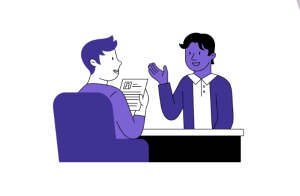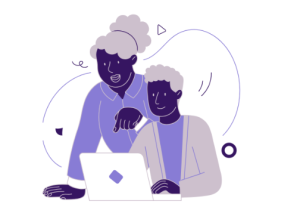Unconscious bias can significantly impact hiring decisions, affecting the diversity and quality of your team. By recognising and addressing these biases, you can create a more equitable and effective recruitment process. Here are practical steps to identify and tackle unconscious bias during hiring interviews.
Strategies to Mitigate Bias
Standardise Interviews
Create a consistent set of questions for all candidates applying for the same role. This ensures a uniform evaluation process, focusing on relevant skills and qualifications rather than personal biases. Standardised questions help interviewers assess candidates based on objective criteria. It is also helpful to ensure multiple people within your company are present at the interview so they can have their own opinion and candidate success can be evaluated from different perspectives.
Diversity in the Hiring Panel
Incorporate diversity within your hiring panel to bring multiple perspectives to the decision-making process. A diverse panel, composed of members with differentbackgrounds, genders, ethnicities, and experiences, can challenge individual biases and offer a more balanced and comprehensive assessment of candidates. This approach not only promotes fairness and inclusivity but also enhances the quality of hiring decisions by considering a wider range of viewpoints and reducing the risk of groupthink.
Provide Bias Awareness Training
Regular training on unconscious bias equips interviewers with tools to recognise and counteract their biases. Training should cover the impact of biases, strategies for mitigation, and the importance of diversity. Ongoing education fosters a more equitable hiring process.
Training should cover;
- Understanding Unconscious Bias: Explain what unconscious bias is and how it affects decision-making.
- Identifying Personal Biases: Help participants become aware of their own biases through self-assessment tools and exercises.
- Strategies to Mitigate Bias: Teach practical techniques for reducing bias, such as taking structured notes, focusing on objective criteria, and avoiding snap judgments.
- Role-Playing Scenarios: Use real-world scenarios to practice identifying and addressing bias in a controlled environment.
- Continuous Education: Encourage ongoing learning and regular refreshers to keep bias awareness top of mind.
Conduct Reflective Post-Interview Reviews
Gather feedback from the hiring panel after interviews and review the decision-making process. Discuss potential biases and ensure decisions align with objective criteria. Reflective practice helps identify and address patterns of bias in future hiring practices.
Leverage Technology
Read this blog to learn how technology is changing the recruitment process. Technology is becoming very popular. You can Utilize AI and other technological tools to standardize the evaluation process. AI-driven tools can screen applications based on objective criteria, reducing the influence of unconscious biases. Technology can help focus on skills and qualifications, promoting fair assessments.
Promote an Inclusive Culture
Fostering an inclusive workplace culture sets a standard for evaluating candidates. An organisational culture that prioritises inclusivity ensures proactive bias mitigation and promotes diverse hiring practices.
Reducing Bias with Skills-Based Hiring
Skills based hiring approach helps mitigate unconscious bias in recruitment by prioritising candidates’ competencies over traditional credentials. This can be done effectively with Identifi measure. By focusing on validated skills through assessments, this method ensures a fair evaluation of all applicants, regardless of their backgrounds. This practice broadens the talent pool to include diverse candidates who may have gained their skills through non-traditional means, such as self-learning or vocational training. Consequently, skills-based hiring promotes inclusivity and equity, leading to a more diverse and capable workforce.
Click here for more details on skills based hiring.
Effectively addressing unconscious bias in hiring interviews requires a deliberate, structured approach. By standardising processes, diversifying hiring panels, implementing structured scoring, providing regular training, conducting reflective reviews, leveraging technology, and promoting an inclusive culture, organisations can make fairer, more effective hiring decisions. These efforts contribute to building a diverse, high-performing team and fostering an equitable workplace.

